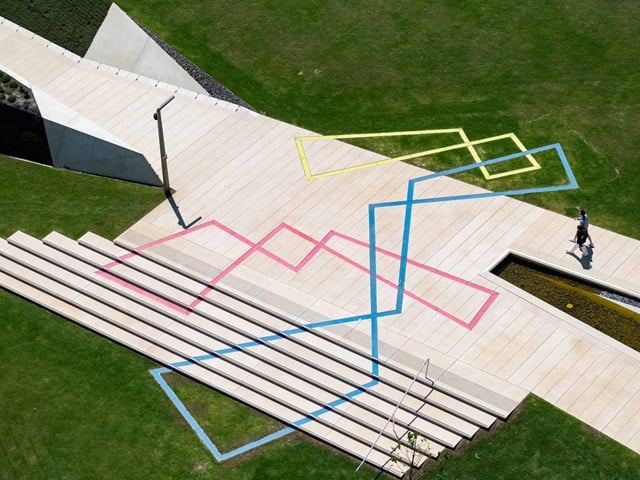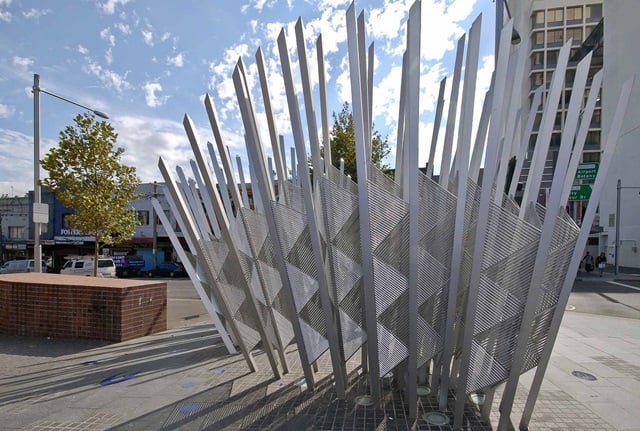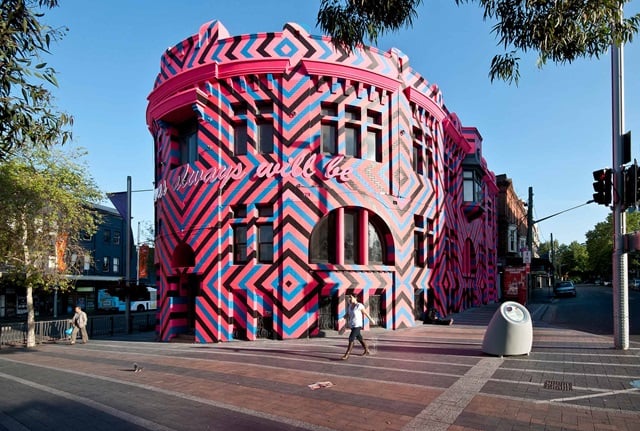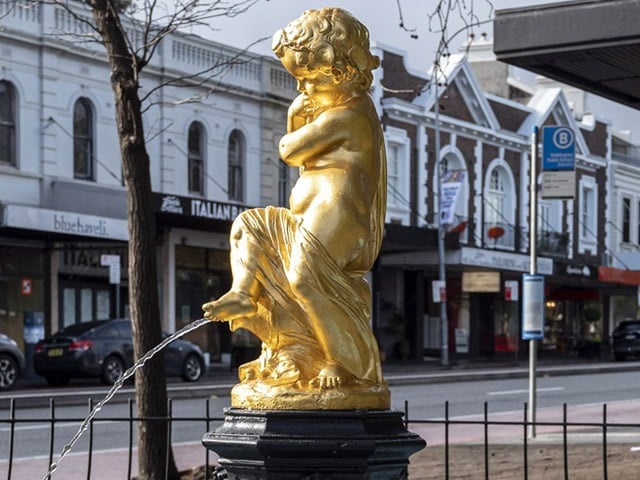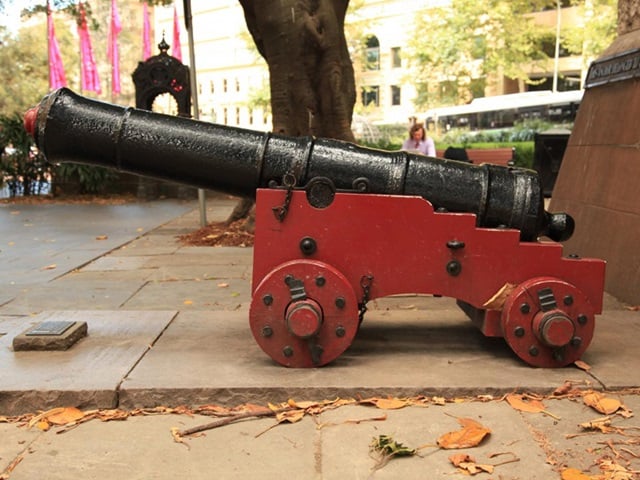
The blank, windowless wall of the Australian Museum on William Street was transformed with a mesmerising exploration of place.
Curator: Hetti Perkins
Artwork description
Larger-than-life images of Aboriginal women were projected onto the 20m façade of the Australian Museum to celebrate the importance of Sydney’s Indigenous history and culture.
The film combines slow movement and still imagery in a muted, sepia-rich architectural projection, around 3 hours in duration. The film features women draped in cloth imbued with traces of mineral and plant specimens. The cloth was dyed with bark and leaves, found in gutters, water drains and at the base of trees. It was thus infused with design elements referencing the growth and structure of plant organisms and remains.
The work explores the Aboriginal concept of place, tracing personal histories and connections to communities. Women, family, friends and people the artist knows, from Sydney and Western Sydney, were invited to place themselves into the cloth. These are women who have impacted on Foreshew’s understanding of ‘place’.
The cloth is illuminated to emphasise the transition of space, as it is always moving between social relationships, revolving around people occupying, owning, seizing, developing, losing or transforming a space.
The projections went live nightly for a 3-month period, from 20 November 2013 to 20 February 2014.
– Nicole Foreshew, 2013
Artist
Nicole Foreshew is a Sydney-based Wiradjuri artist. Her artistic practice involves environmentally sustainable plant materials and minerals which are used to permeate objects for performance.
Foreshew’s grandfather was born on the banks of the Bogan River in Peak Hill. Her grandmother and great grandmother are from Dubbo, located in the Central West region of NSW. The Australian Museum has 11 objects and one carved tree from Peak Hill. The museum’s mineralogy and palaeontology collection include Talbragar fossils, a Jurassic Period site near Gulgong.
